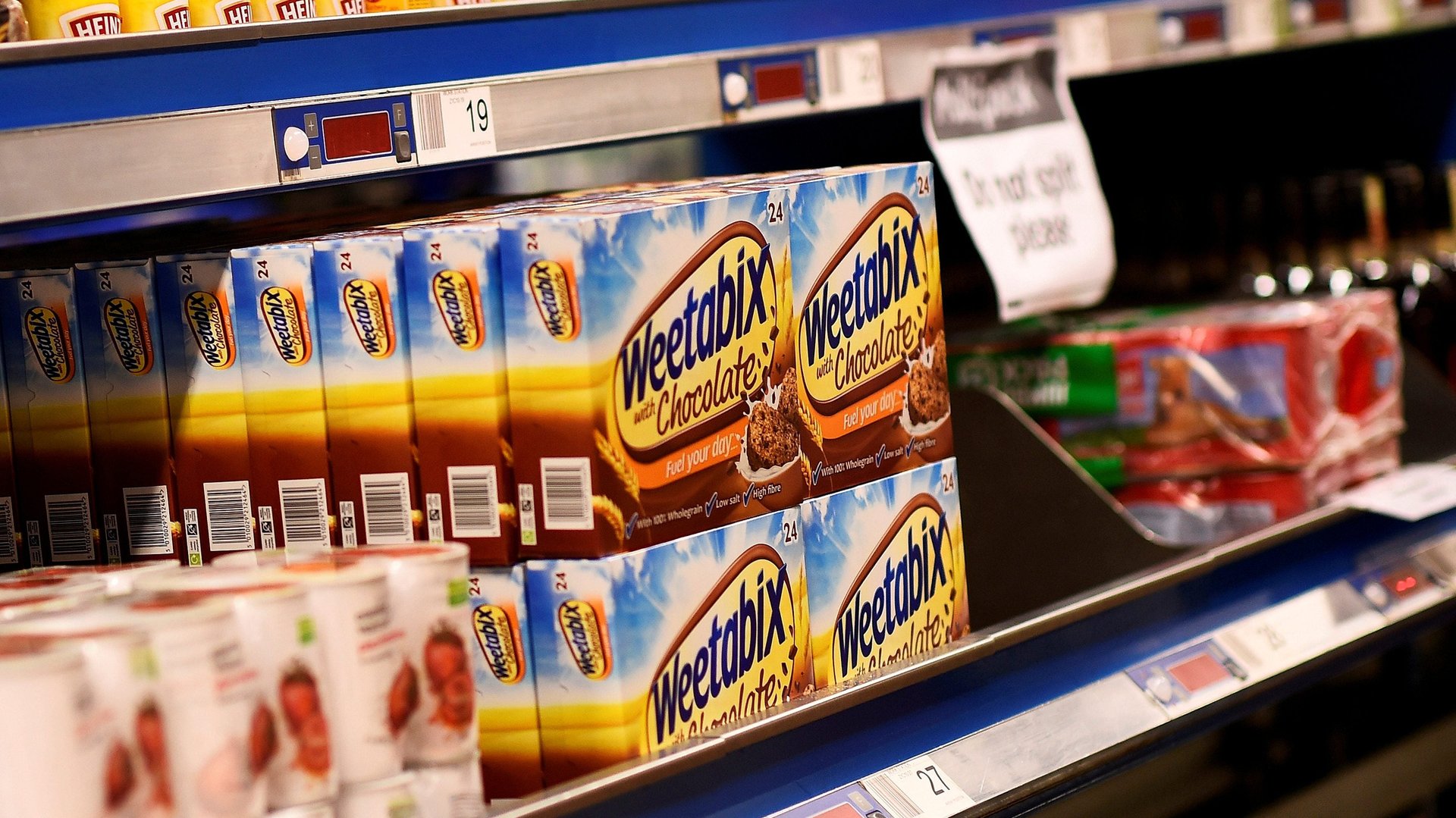China’s consumers don’t like the weird taste of Weetabix, and they’re not the only ones
Weetabix, the beloved British breakfast cereal, has officially failed at hawking its wares in China.


Weetabix, the beloved British breakfast cereal, has officially failed at hawking its wares in China.
US breakfast brand Post Holdings, maker of Golden Crisp and Cocoa Pebbles, purchased the company for $1.7 billion, after China’s Bright Food put the company up for sale in January.
Bright Food bought a 60% stake of the cereal firm in 2012, at the time the largest food and beverage acquisition by a Chinese company. It was banking on affluent Chinese consumers voraciously adopting Western breakfast options in lieu of traditional rice cereal and steamed bread.
But not even the European-product-crazed Chinese could stomach Weetabix. By 2015, the cereal firm’s revenues had sunk to £346m, 2% lower than what they were in 2012. Though the company exports its products across 80 countries, the vast majority of its sales (84%) are still in the UK, where Weetabix is the country’s second-largest, if still troubled (paywall), cereal maker.
The notoriously mushy cereal hasn’t inspired ringing endorsements in the US. Even in the UK, the company has been struggling to keep up with a more health-conscious, hurried consumer. Its attempts to tempt Britons with newfangled breakfast drinks and recipes for Weetabix-inspired eggs benedict have inspired more mockery than sales. A marketing ploy to use Weetabix as a base for eggs benedict, for example, went viral when consumers reacted with revolt.
Bright Food went so far as to say that shedding the company would boost international growth. “Selling assets enables us to better expand. Going forward Bright will stick to our overseas push,” a company spokesman said.
Weetabix, which carries a royal warrant, has been a cherished brand in the UK since 1932. Family owned until 2004, it was bought by British private equity firm Lion Capital before Bright’s 2012 acquisition. British fans seem to be the only ones mourning the loss of their prized heritage.